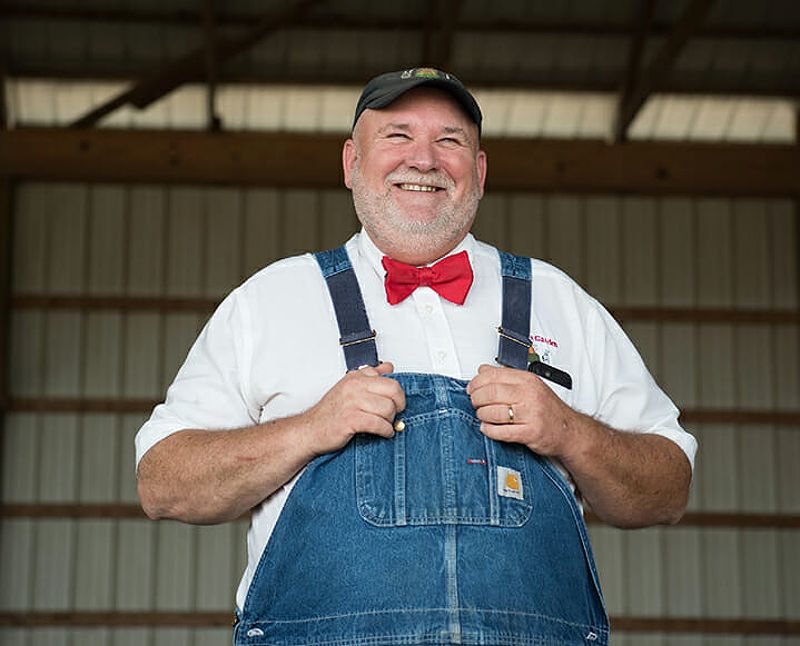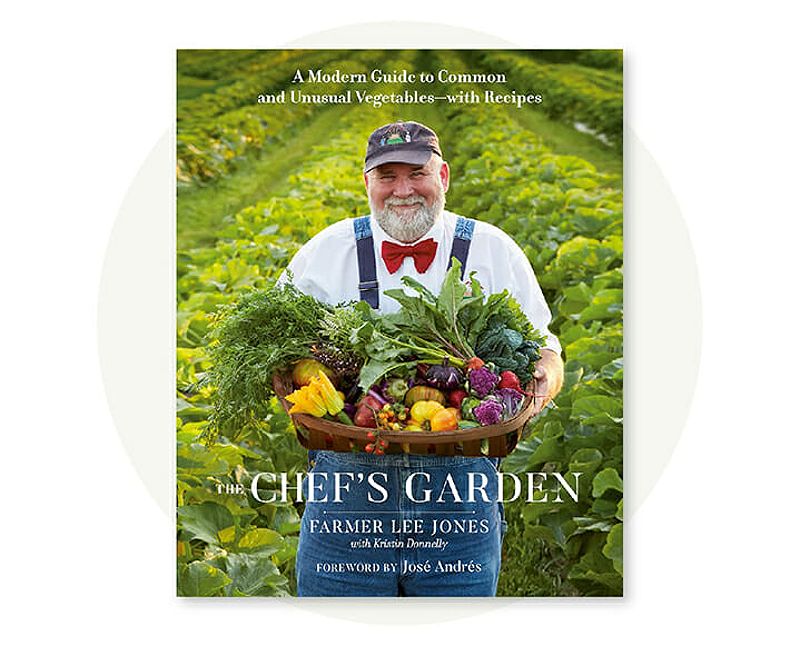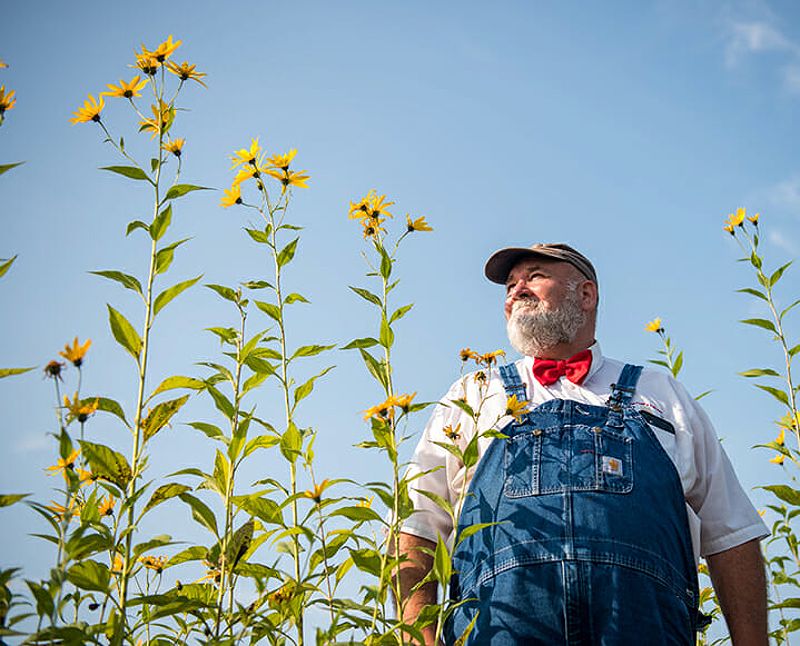Learn 10 valuable insights from Farmer Lee Jones on sustainable food and farming, including embracing the seasons, supporting local farmers, reducing food waste, valuing soil health, and being a mindful consumer.
- Embrace the Seasons: Enjoying the Freshest Produce
- Support Local Farmers: Strengthening the Community
- Reduce Food Waste: Embracing Imperfection
- Value Soil Health: The Foundation of Regenerative Agriculture
- Compost and Reduce Waste: Closing the Loop
- Know Your Food Labels: Making Informed Choices
- Preserve Food Properly: Extending Shelf Life and Reducing Waste
- Diversify Your Diet: Exploring Flavors and Supporting Biodiversity
- Choose Sustainable Farming: Restoring the Environment
- Be A Mindful Consumer: Making Choices That Matter
- Conclusion: Cultivating a Healthier Future
Embrace the Seasons: Enjoying the Freshest Produce
Embracing the seasons allows us to enjoy the freshest produce while supporting sustainable agricultural practices. Farmer Lee Jones takes pride in growing an array of seasonal vegetables, each with its unique character and taste.

( Credit to: Thechalkboardmag )
Nature’s bounty varies with the seasons, offering a diverse range of flavors and nutrients. By embracing what each season brings, we can savor the best that nature has to offer while supporting local farmers and reducing our carbon footprint.

( Credit to: Thechalkboardmag )
When we choose to embrace the seasons, we not only support sustainable farming practices but also get the opportunity to explore a wider variety of flavors and expand our culinary horizons. It’s a win-win for our taste buds and the planet!
Support Local Farmers: Strengthening the Community
Visiting farmers’ markets and buying directly from local growers strengthens the community’s agricultural heritage. It allows us to connect with the people who cultivate our food and promotes a transparent food chain. Supporting small-scale, family-run operations sustains a vibrant and diverse farming landscape.

( Credit to: Thechalkboardmag )
By supporting local farmers, we contribute to the local economy and help preserve traditional farming practices. Additionally, buying locally reduces transportation emissions and ensures that we have access to fresh, high-quality produce.
When we support local farmers, we not only get to enjoy the freshest and most flavorful produce, but we also help create a more sustainable and resilient food system. It’s a meaningful way to make a positive impact on our community and the environment.
Reduce Food Waste: Embracing Imperfection
Reducing food waste is crucial, and Farmer Lee Jones understands its significance. By embracing “imperfect” produce and utilizing all parts of the plant in recipes, such as making carrot top pesto, we can minimize waste and ensure nutritious food reaches our tables. Each vegetable’s uniqueness adds to its appeal and contributes to food sustainability.
Food waste is a significant environmental issue, and by making small changes in our daily lives, such as using vegetable scraps for homemade broths or pickling surplus produce, we can make a big difference. It’s about embracing imperfection and finding creative ways to minimize waste.
When we reduce food waste, we not only save money and resources but also help combat climate change. By making the most of the food we have, we contribute to a more sustainable and efficient food system.
Value Soil Health: The Foundation of Regenerative Agriculture
Regenerative farming is at the core of Farmer Lee Jones’ practices. Prioritizing soil health through cover cropping, reduced tillage, and organic matter incorporation creates a thriving ecosystem that supports vegetable growth and the well-being of beneficial organisms.
Soil health is essential for the long-term sustainability of our food system. By focusing on regenerative practices, such as building organic matter, enhancing soil structure, and promoting biodiversity, we can ensure that our soil remains fertile and resilient.
When we value soil health, we not only support the growth of healthy and nutrient-rich crops but also contribute to the overall health of the environment. It’s a holistic approach that benefits both farmers and consumers.
Compost and Reduce Waste: Closing the Loop
Composting is fundamental to Farmer Lee Jones’ farming philosophy. By recycling organic plant waste into nutrient-rich compost, the soil is enriched, and crops thrive. This reduction in waste contributes to the circular nature of the farm’s ecosystem.
Composting is a simple and effective way to reduce waste and improve soil health. By composting our kitchen scraps and yard waste, we can divert organic matter from landfills and create a valuable resource for our gardens.
When we compost and reduce waste, we not only help reduce greenhouse gas emissions but also create a nutrient-rich soil amendment that improves the health and productivity of our gardens. It’s a sustainable practice that benefits both the environment and our plants.
Know Your Food Labels: Making Informed Choices
Being aware of food labels empowers us to make informed choices aligned with our values. While Farmer Lee Jones’ farm is not certified organic, they adhere to regenerative farming principles that go beyond conventional practices, prioritizing environmental health and sustainability.
Understanding food labels can be a powerful tool in making sustainable food choices. Look for labels that indicate regenerative farming practices, such as “beyond organic” or “sustainably grown.” These labels often signify a commitment to environmental stewardship and ethical farming practices.
When we know our food labels, we can support farmers who prioritize sustainable practices and make choices that align with our values. It’s about being conscious consumers and supporting a food system that values both our health and the health of the planet.
Preserve Food Properly: Extending Shelf Life and Reducing Waste
Properly storing vegetables and fruits is essential to retain their freshness and nutrients. Farmer Lee Jones recommends learning the best storage methods for different produce to extend shelf life and minimize food spoilage.
Preserving food properly not only helps reduce food waste but also allows us to enjoy the full flavor and nutritional benefits of our produce. From storing leafy greens in airtight containers to keeping root vegetables in a cool, dark place, these small actions can make a big difference.
When we preserve food properly, we not only save money and reduce waste but also get to enjoy the best quality produce for longer. It’s about maximizing the value of our food and minimizing our impact on the environment.
Diversify Your Diet: Exploring Flavors and Supporting Biodiversity
A diverse diet introduces us to a multitude of flavors while supporting biodiversity. Farmer Lee Jones grows an array of heirloom and specialty vegetables, encouraging culinary exploration and fostering a deeper connection to the land.
Diversifying our diet is not only exciting for our taste buds but also essential for our health and the health of the planet. By incorporating a variety of fruits, vegetables, grains, and legumes into our meals, we can ensure that we get a wide range of nutrients while supporting sustainable farming practices.
When we diversify our diet, we not only expand our culinary horizons but also support farmers who grow a diverse range of crops. It’s a delicious way to promote biodiversity and create a more resilient food system.
Choose Sustainable Farming: Restoring the Environment
Opting for vegetables grown through regenerative farming practices contributes to environmental restoration and conservation efforts. Regenerative farming helps sequester carbon, rebuild soil health, and restore ecosystems.
Choosing sustainable farming practices is a powerful way to protect our planet and ensure a sustainable future. Look for farms that prioritize regenerative practices, such as rotational grazing, agroforestry, and water conservation, as they play a vital role in mitigating climate change and preserving natural resources.
When we choose sustainable farming, we support a food system that goes beyond minimizing harm and actively works towards healing the environment. It’s a choice that benefits not only us but also future generations.
Be A Mindful Consumer: Making Choices That Matter
Being mindful about our food choices means recognizing their impact on our health, the environment, and farming communities. By supporting regenerative farming and local growers, we actively participate in creating a sustainable and resilient food system that benefits us all.
As consumers, we have the power to drive change through our purchasing decisions. By choosing organic, locally grown produce and supporting farmers who prioritize sustainable practices, we can create a demand for more environmentally friendly and socially responsible food.
When we are mindful consumers, we not only nourish our bodies with healthy and sustainable food but also contribute to a more equitable and resilient food system. It’s about making choices that align with our values and creating a better future for all.
Conclusion: Cultivating a Healthier Future
Farmer Lee Jones’ wisdom and expertise in regenerative agriculture provide valuable insights into sustainable food and farming practices. Embracing the seasons, supporting local farmers, reducing food waste, valuing soil health, composting, knowing food labels, preserving food properly, diversifying our diet, choosing sustainable farming, and being mindful consumers are all essential steps towards creating a healthier and more sustainable future.
By implementing these practices in our daily lives, we can make a positive impact on our health, the environment, and farming communities. Let us embrace these insights and make conscious choices that benefit our well-being and the well-being of the planet. Together, we can cultivate a healthier future for generations to come.
